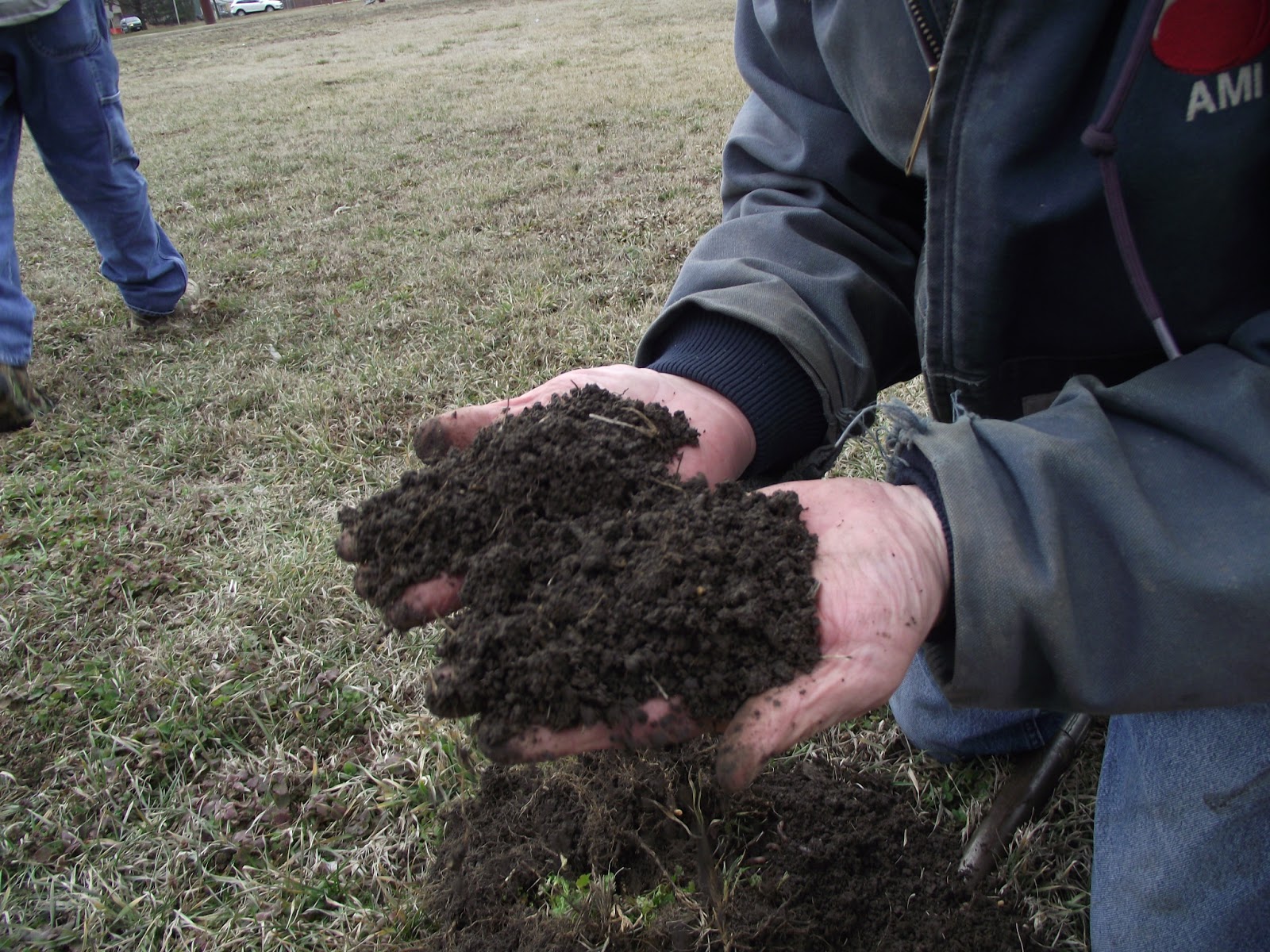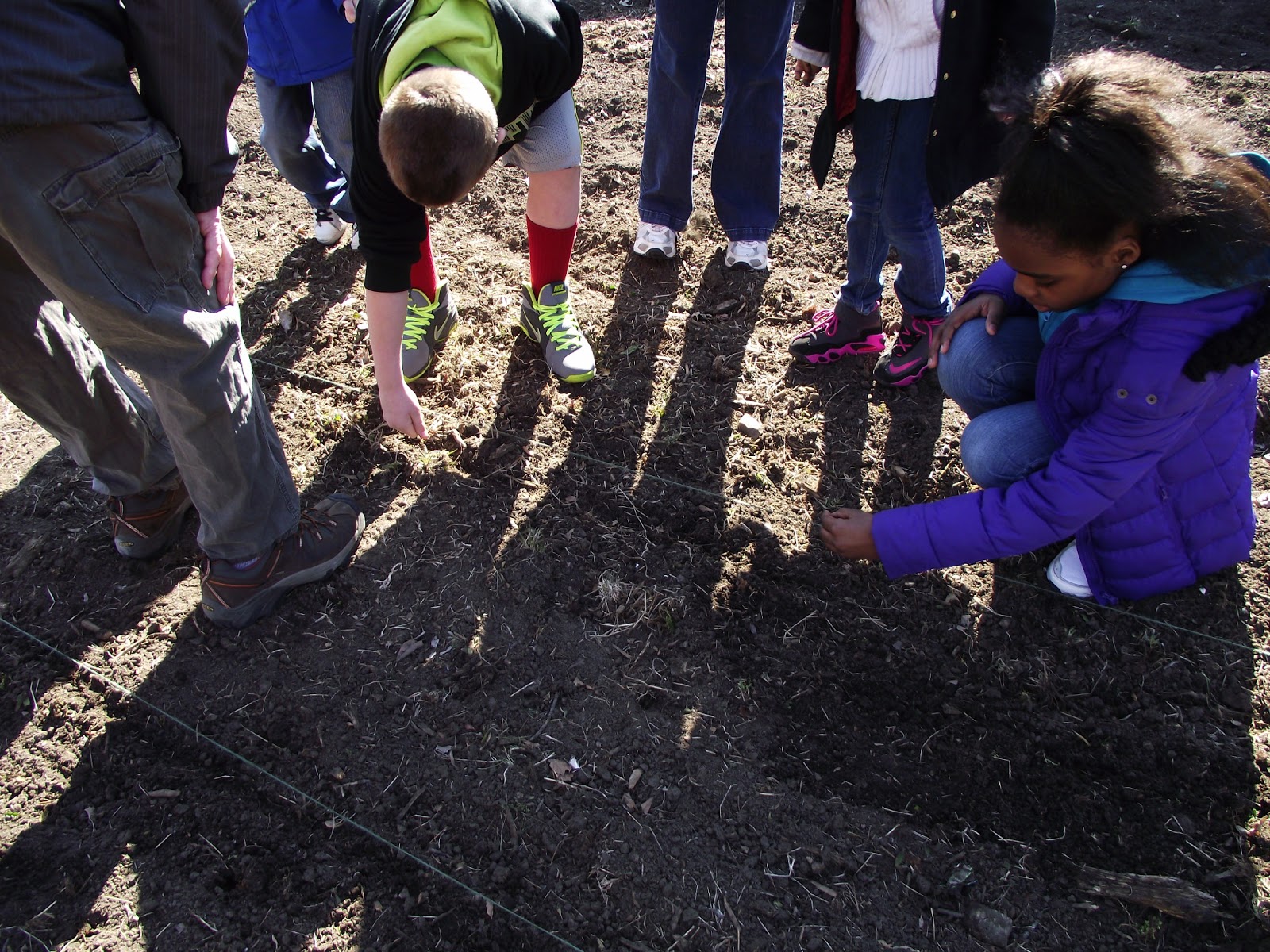Wednesday, May 22, 2013
WIlcox Planting
Wilcox was fun and easy, mostly little grade schoolers who were full of enthusiasm and energy. The weather has been gorgeous, alternating between showers and sun for weeks. Glad to have that going for us at least.
Community garden site scouting meeting
For a period of a couple months, we had weekly garden meeting with a group of volunteers and other people who were starting a community garden at Kumler Church. At this meeting, we scouted the site of the new community garden at E Cook street. As you can see, we had and still have a lot of work to do. Most of the site is nothing but powdery dirt and gravel, but fortunately there was still plenty of fertile space to meet our first-year needs. Hopefully, by seeding nitrogen fixing and mulch-producing groundcovers over the rest, we will be able to expand in later years.
Douglas school consultation
Unable to put anything into the still-frozen soil outside, we toured each of the classrooms at Douglas school to show them the seeds we received as donations from various seed companies, including Baker Heirloom, Southern Exposure, and many more. We introduced ourselves and let the students pick out what they want to try to grow, took notes, and talked about the importance of growing food. Some classes were more receptive than others. A couple offered open interest and even described some experience, others refused to even lift their faces off their desks or reply to anything we said. For the most part, though, they came around and seemed to enjoy us, or at least the prospect of getting outside and trying it. This has since become one of my favorite current places to garden. -Rox
Roots
Our first school planting took place on a cold but sunny day in March 2013, the exact date of which I can no longer recall, but the project, no, the mission of what we are doing has been incubating in the minds of those involved for months, even years before this.
It's hard to say when it started. I had known George Sinclair, now known as genHkids' Garden Coordinator, in passing for years. Like many other tweens and teens in town, I came around his place often for punk shows at Black Sheep music venue, located right next to George's famous Skanks Skates.
But even before I fell under the spell of his lush urban garden on-site at Skanks, I had been reading books about the ecology, nutrition, politics, and mechanics of growing food. Indeed, before that, it was my resolve for a vegan lifestyle that got me interested in food, and long before that I spent summers in wonder at the gardens of my grandmothers, at the strange and various plants, insects, and the wildlife that took refuge there. There's even a picture somewhere of me as a still-bald-but-walking baby with my nose plunged deep in a large red tulip. However, attempting to trace the roots of what is happening so far would be fruitless, if not incomprehensible, so I digress.
I was out for a show the night that this idea first inched into existence. It was a hot, humid night in June or July sometime last year. The sunflowers were already standing tall above my head as I approached George to admire his garden and offer some helping hands. I started coming out to work with him on my days off. As the garden grew, so did our ideas of the great educational potential the garden could have. It was self-evident to us both that the knowledge and practice of growing food was of intrinsic value to all people who eat, especially in our modern food-corrupted world, and we resolved to share it however we could. I wrote up a few pages on our mission and made an outline for garden tours, which we would give to the punk and skater kids who came by. At the end of the season, I left to go WWOOFing in Japan, an experience chronicled here: diseasecalledman.blogspot.com. When I came back, George had hooked up with the folks at genH (genhkids.org) who were interested in what we had done and wanted to do more.
genHkids had done a few school gardens, many of which had been overgrown or destroyed by vandalism. They hired George, and took me as an intern. We took on 6 school gardens - part of genHkids Healthy Seeds project - and our first community garden, Seeds of Possibility. For the most part, these were started from scratch this year.
That's pretty much how we started. I'll do my best keep up with where we are now, and where we go from here.
Long live the earth.
-Rox
Message from genHkids president
Occasionally someone special walks, completely unexpectedly,
into your life and changes the direction you thought you were
headed. These occurrences can be good or
bad, but rarely are they without importance.
My years as genHkids' President has taught me many things, and among the
most important of those lessons has been to pay close attention to the people
who enter our organization – and my life – unannounced.
Roxanne is certainly one such someone. She is as clever and perceptive a student as
I’ve ever encountered, and I’m so pleased by her hunger to learn and
willingness to intern at genHkids. Rox
may have arrived quite unexpectedly, but she quickly found her place at the
heart of one of our most hopeful ventures.
The purpose of this blog is to allow Rox to narrate the
creation of genHkids first ever community garden, a project I fondly dubbed Seeds
of Possibility. I’ve given this
great responsibility to Roxanne because I trust both her keen eyes and her kind
heart to witness, participate in and document this undertaking with wisdom,
insight and humor.
Community Gardens are great connectors. They help connect participants to the source
of their food, neighbors to one another, parents to children and children to
our earth. They can be a source of food, activity, beauty, mental health,
income and respite. Research on Urban
Agriculture projects in socially and economically depressed areas of major
cities cite improvements in most major indicators of mental and physical
health, as well as significant decreases in crime.
Additional research shows that children who participate in
the production of their food, whether in gardens or the kitchen, are much more
likely to try, and to like, those food options; vegetable gardens are an
excellent opportunity to expand young palates and instill healthy eating
habits. “Seed to Fork” is a concept we
hope to begin instilling in our children and community.
I’ve always loved the reassurance implicit in the thought
that “we don’t know how the story ends.”
I am truly looking forward to experiencing this project through
Roxanne’s eyes – and through the eyes of anyone she may include in the blog
pages to come (I’m rooting for at least one entry told from the vantage-point
of her book-eating, canine companion). I
hope you’ll visit this site often for updates, and that you will come to share
our excitement for the Seeds of Possibility being sown in
our community!
Kemia Sarraf, M.D., M.P.H.
President&Founder, genHkids.org
www.genHkids.org
Kemia@genHkids.org
President&Founder, genHkids.org
www.genHkids.org
Kemia@genHkids.org
Subscribe to:
Posts (Atom)

























